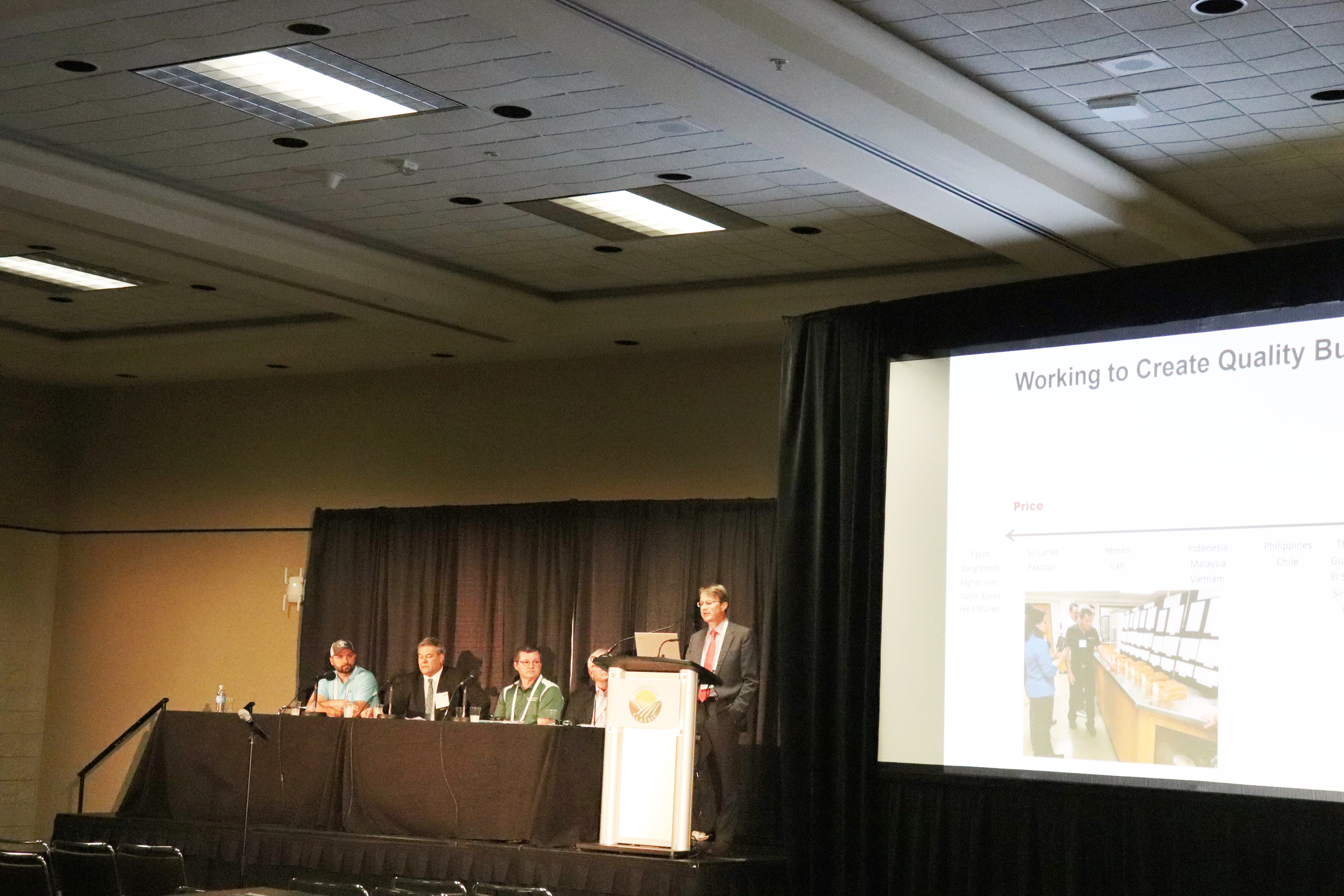By Steve Wirsching, USW Vice President and West Coast Office Director
It is U.S. Wheat Associates’ (USW) mission to “develop, maintain, and expand international markets to enhance wheat’s profitability for U.S. wheat producers and its value for their customers.” The overseas market has changed tremendously in the last 25 years. In the 1990s, the United States was a dominant global supplier. Today, it is one of many suppliers in a highly competitive international market. International trade has nearly doubled during that same time, driven by population and income growth. This growth has increased competition, elevating wheat quality as a vital component of value.
Russia now boasts that it exports more wheat than the United States. While Russia exports more tons, the United States continues to lead the world when sales are measured in dollars. In 2018, Russia exported $5.8 billion worth of wheat as compared to $6.1 billion exported by the United States. U.S. wheat commands a higher price in the international market because customers recognize its quality, consistency, and value.

USW supports the annual National Wheat Yield Contest sponsored by the National Wheat Foundation (NWF). Increasing wheat production is important to the long-term viability and competitive position of wheat as a food grain. However, wheat quality must not be compromised in exchange for higher yields. Growers need both higher yields and better quality. Along with the NWF and the National Association of Wheat Growers, USW recently helped sponsor a learning session, “Putting Quality in the Spotlight,” at the 2019 Commodity Classic in Orlando, Fla. The session focused on enhancing the message that quality is important. Panelists discussed why the top winning varieties should also be subject to minimum end-use functionality tests because some in the industry worry that the United States will adopt more wheat forage varieties to enhance yields, at the expense of quality. Farmers know you cannot sell something the customer does not need or want to buy. That is why quality is important.
Find more information about U.S. wheat quality and related resources here.


